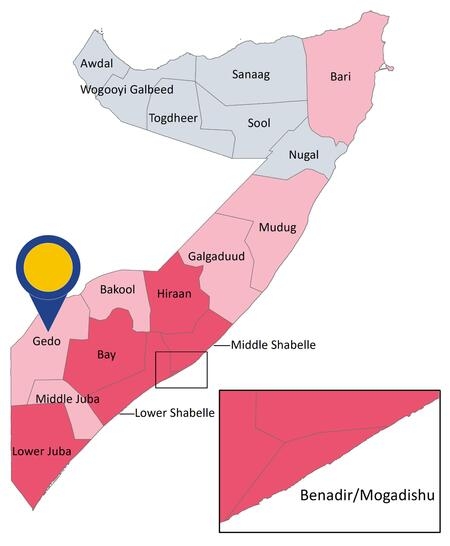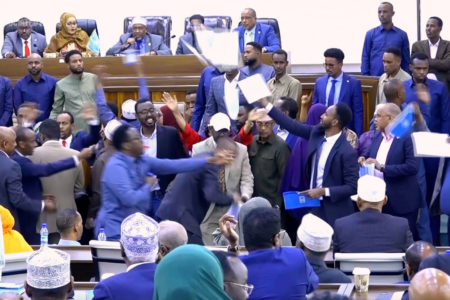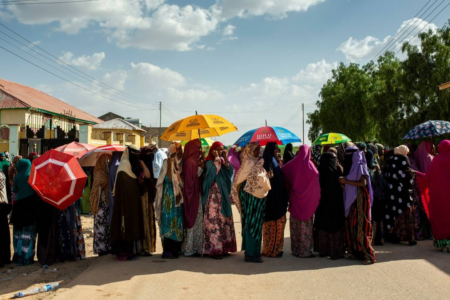Somalia’s Gedo region stands at the epicenter of escalating tensions between the Federal Government of Somalia (FGS) and the semi-autonomous Jubaland administration.
As both sides vie for control of key towns and strategic assets, the region’s stability—and the broader national security—is under threat.
1. Background: Political Rift and Power Struggle
Since November 2024, Jubaland’s President Ahmed Mohamed Islam “Madobe” has formally suspended cooperation with Mogadishu, following his disputed re-election and accusations that the federal government “politicizes aid” and undermines regional autonomy.
In response, Mogadishu issued an arrest warrant against Madobe, prompting Jubaland authorities to reciprocate by targeting President Hassan Sheikh Mohamud.
2. Military Buildup and Clashes in Gedo Region
Tensions have spiraled into armed confrontation.
In late July 2025, federal-aligned forces under new Gedo intelligence chief Abdirashid Janan were deployed to Balad-Hawo, prompting Jubaland troops to encircle their camp and issue a surrender ultimatum.
The same day, Jubaland forces seized full control of Balad-Hawo, with heavy fighting resulting in multiple casualties.
In December 2024, Jubaland forces routed federal troops near Ras Kamboni, compelling hundreds of Somali National Army soldiers to surrender or flee into Kenya.
These clashes mark significant setbacks for Mogadishu’s authority in Gedo Region.

3. Militia Integration and Regional Maneuvers
Jubaland has bolstered its grip on the region by formally integrating local militias into its Darawish regional forces, strengthening its military capacity in Balad-Hawo and beyond.
This broad consolidation of power reinforces Jubaland’s assertion over contested areas and complicates federal countermeasures.
4. Strategic Stakes and Political Implications
Control over Gedo Region is critical for both sides.
For the federal government, gaining influence here is a step toward realizing its “one person, one vote” ambitions ahead of the 2026 elections.
For Jubaland, retaining control means safeguarding regional autonomy and its political relevance.
Analysts warn that the ongoing standoff deepens Somalia’s constitutional crisis, increasing vulnerabilities to al‑Shabab’s expansion—especially as federal forces divert attention from counterinsurgency operations to internal conflicts.
5. Calls for Mediation and Dialogues
International actors, including the African Union and IGAD, have urged both parties to engage in inclusive dialogue.
While experts recommend involving Ethiopia and Kenya—who support opposing sides—to facilitate negotiations and avert broader violence in Gedo and southern Somalia.
Uncertainty About Somalia Future
Somalia’s power struggle over Gedo Region underscores a fragile federal building threatened by deep political rivalry.
With federal and regional forces entangled in armed confrontation, Gedo conflict carries severe implications—from electoral legitimacy and regional autonomy to national security.
Without urgent mediation and political compromise, Somalia’s path to stability—and its ability to effectively combat al‑Shabab—remains uncertain.








